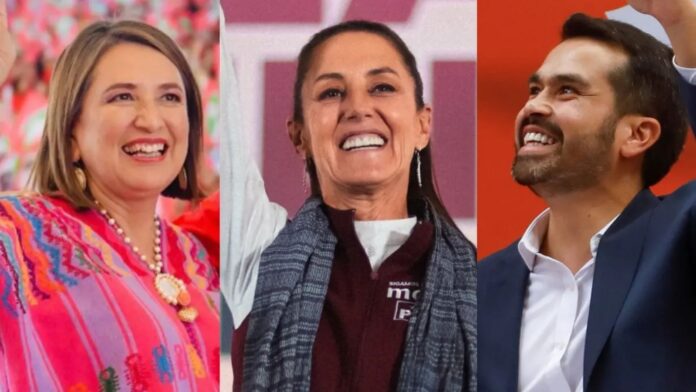It would be important that in the last debate, the candidates could provide more details about their proposals to reduce violence, homicides, disappearances and extortions in the following years.
More homicides, less violence. This phrase, uttered by the president of Mexico during his “mañanera,” would seem to be the last effort to justify his failed strategy of “hugs and not bullets” at the end of his six-year term. And although Andrés Manuel López Obrador and his followers will continue to blame previous administrations, and the PAN and PRI governments in the last 30 years, the data is conclusive and irrefutable: López Obrador’s administration was the most violent in recent history of Mexico, and the six-year period in which the territorial control and war capacity of organized crime dramatically increased.
And it is in the area of security where the “Teflon” phenomenon of Andrés Manuel López Obrador is most observed: Despite the catastrophic strategy in terms of security, in performance surveys in the area of public security only 23 percent of Respondents had a favorable opinion of the president in April, and 64 percent had an unfavorable opinion. The popularity of the president and his presidential candidate would seem not to feel this disapproval in national polls in April.
In any other country, this resounding failure on this issue, which affects the daily lives of the majority of voters, would surely have had a political cost at the polls, but not in the case of the Morena candidates, it would seem that the cost will be minimal. And this is extraordinary, considering that at no time have the presidential candidate, Claudia Sheinbaum, the governorships and mayors of Morena sought to distance themselves from López Obrador and his strategy of hugs and not bullets, and the disdain that the president has expressed, during throughout the six-year period, towards the victims of violence and their families.
Particularly contemptible was the way in which López Obrador attacked the search mothers, accusing them of being part of a political operation to weaken his government. He simply would not recognize that it was during his six-year term that the most people disappeared. There is no country in the world that has the numbers of disappearances that Mexico has, not even countries that are at war.
And during this electoral process, candidate Claudia Sheinbaum reiterates her support for her mentor’s “hugs and not bullets” strategy. While the opposition candidate, Xóchitl Gálvez, basically promises not to continue the failed strategy of this six-year term.
It is unimaginable that voters would agree to maintain the current strategy for six more years. But the opposition has not put on the table what its strategy will be and how it differs from “hugs and not bullets.”
But regardless of who wins, if an important change is not made in the way in which the country seeks to “pacify” and reduce homicides and disappearances, violence and ungovernability will surely increase even more, as incredible as this may seem.
Therefore, it would be important that in the last debate, the candidates could provide more details about their proposals to reduce violence, homicides, disappearances and extortions in the following years.
Among the issues that should be addressed would be an explanation of how the strategy of the next six-year term will differ from the current one. A detailed evaluation of official data on security, the criminal organizations that control the country, the impact they have on formal economies, and their war capacity will be essential. Obviously, a detailed analysis of the restructuring of the national security apparatus and the effectiveness in confronting criminal organizations.
The question about what position they will take regarding the militarization that was promoted during this six-year term will be almost impossible to answer until the new president is clear about how the resources of the armed forces were used and what activities are carried out by the majority of the military elements. in this six-year term.
Obviously, strengthening state and municipal police should be a priority, but where do the resources come from? How much progress can be made in a six-year term, considering the destruction and weakening of institutions? There will surely be an evaluation of the intelligence and national security apparatuses: how to make them more effective? Perhaps it will be enough for the candidates to talk about reforms to the prosecutor’s offices and the judicial apparatus to make them more effective.
Hopefully at the end of Sunday’s presidential debate, we can better answer the question: Which of the two candidates inspires you the most confidence that in six years Mexico will be a safer place for our children?
Source: elfinanciero







